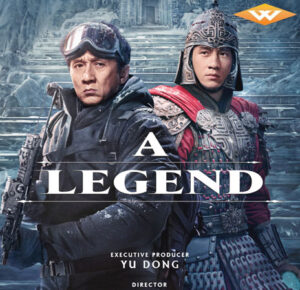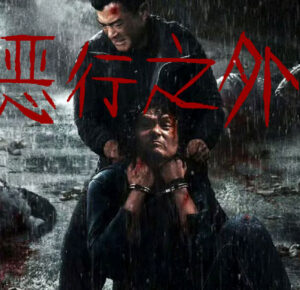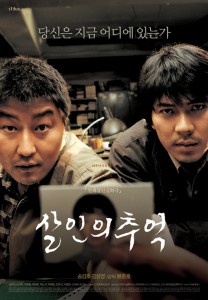Director: Jaume Balagueró, Paco Plaza
Writer: Jaume Balagueró, Manu Díez, Paco Plaza
Producer: Julio Fernández
Cast: Jonathan Mellor, Óscar Sánchez Zafra, Ariel Casas, Alejandro Casaseca, Pablo Rosso, Pep Molina, Andrea Ros, Ális Batllori, Pau Poch, Juli Fábregas, Nico Baixas, Javier Botet, Carlos Olalla, Manuela Velasco
Running Time: 85 min.
By HKFanatic
I love the original [REC]. When I first saw the Spanish-language horror film about zombies in a quarantined apartment building, it instantly launched itself into my top ten zombie flicks of all time. It’s one of the few horror films I can think of that have matched the sheer visceral thrill of George A. Romero’s original “Dawn of the Dead.” [REC]’s blend of handheld camera footage a la “The Blair Witch Project” or “Cloverfield” with the rabid, ultra-violent zombies of “28 Days Later” was nothing short of genius, especially the way directors Jaume Balagueró and Paco Plaza made several sequences appear as one long camera take. [REC] was a technical marvel and the cinematic equivalent of a roller coaster ride.
That’s why [REC] 2 is such a crushing disappointment. Nearly everything the original got right, the sequel gets wrong. [REC] 2 is set up to be something like the “Aliens” to the original [REC]’s “Alien.” We follow a (supposedly) highly-trained and heavily-armed SWAT team as they head into the same contaminated building from the first film. Although it literally begins where the first movie ends, has a great premise, and features the same team behind the camera, the film makes critical misstep after misstep.
Whereas the first [REC] focused on both characterization and set-up, with a solid 20 minutes of getting to know the characters before we even saw a zombie, here we’re thrown into the mire right from the get go. There’s no chance to get to know anybody on the SWAT team; they’re all just panicked, trigger-happy dudes who love to throw the “f” bomb around. It takes you out of the movie when these supposedly tough SWAT guys start acting like a bunch of scared elementary school kids as soon as “shit gets real.”
[REC] 2 thus moves the focus from characterization to exposition. If the first film teased you with morsels of a plot, mere hints as to why a zombie plague was spreading through this apartment building, then the sequel does it best to explain away everything. And if there’s anything horror buffs know about their genre, it’s that the more you explain something the less scary it becomes. I really didn’t need a scientific reason for everything that happens in this movie or constant conversations about blood samples and demonic possession. I just wanted an intense, over-the-top flick about scared that the hell out of me like the first [REC], with maybe a few SWAT guys blasting zombies to bits with automatic weapons.
To make matters worse, halfway through the movie we flash back to a bunch of spoiled teenagers with their own handheld camera and are forced to watch events unfold from their (annoying, whiny) perspective until they catch up the plot. If the film hasn’t lost you by then, it might during the climax when the directors delve into truly otherworldly territory with the script revealing a ‘pocket dimension’ that can’t be seen in normal light. It’s all very “Silent Hill” and perhaps a bit too supernatural for a film series that goes for the ultra realistic, shakycam aesthetic. Then there’s the ending, which actually manages to retroactively ruin the ending of the first movie while also being just plain revolting.
In any film, there are certain inconsistencies or far-fetched moments that force you to suspend your disbelief and just move on if you want to enjoy it. [REC] 2 is what happens when all of those inconsistencies pile on top of each other and cause the film’s internal logic to collapse. Too many moments where you’re left asking yourself, “Why would anyone do that?”
It’s a silly, plot-driven horror flick where the plot just doesn’t make any sense. SWAT guys who are theoretically trained to deal with terrorists and rioters turn into sissies at the sight of a rabid grandma; teenagers decide to break into a quarantined building because it somehow represents their chance at a better life; a scientist demands a blood sample from a monster, never once mentioning that the creature needs to be alive, and then acts like all hope is lost when the blood is literally all over the ground. And despite being possessed by demonic forces, the zombies in [REC] 2 are remarkably easy to restrain by hand, especially compared to the first film. Nobody gets bit, even with these things chomping their teeth within an inch of their face.
For better or worse, the [REC] train seems like it’s going to keep on rolling. Directors Jaume Balagueró and Paco Plaza are splitting duties on [REC] 3 and [REC] 4. Part 3 will supposedly be a prequel set in a church that perhaps explains how all of this came to be. Part 4 promises to deal with the demonic zombie apocalypse. I only hope these guys can learn from their mistakes on part two. Get back to what matters and what the first film did so well: a thrilling premise, no shortage of frightening moments, solid characterization, and an ending that hit like a punch to the gut.
HKFanatic’s Rating: 5.5/10























2 Comments